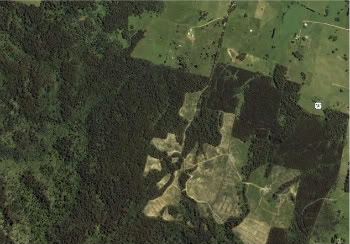Project will pay landowners not to log old-growth forests in Tasmania
A forest conservation project in Tasmania has become Australia’s first Reduced Emissions from Deforestation and Degradation (REDD) project to meet Climate, Community and Biodiversity Standards.
The project, run by Sydney-based Redd Forests, is on 860 hectares of private land in Tasmania. Logging of old-growth forests in Tasmania is increasingly controversial: environmentalists regularly clash—sometimes violently—with forestry companies.
The new project provides an alternative source of income for landowners who have traditionally relied on logging. A statement from Redd Forests explains:
-
The Redd Forests project… demonstrates the commercial viability of using the carbon market to reward landowners who, traditionally, have logged their land for income. Instead, landowners can now assign those same logging rights to Redd Forests in return for a percentage of the proceeds of sale of the resulting carbon credits. These credits are generated by Redd Forests ‘locking up’ the land for a period of 25 or more years thus avoiding the release of greenhouse gas emissions resulting from logging and land clearing practices. In return the landowner commits to manage the land and promote the natural regeneration and growth of their native and old growth forests.
 Clear-cut at Caveside near Chudleigh in Tasmania as seen from Google Earth. Image courtesy of Pete Godfrey. |
“This is a ‘win-win’ in the fight against climate change” said Redd Forests’ Managing Director Stephen Dickey.
“The landowner can secure a healthy income for protecting rather than degrading his forest land, the emissions of greenhouse gas are avoided, and buyers of the carbon credits can take comfort that they have protected high conservation value land for a generation at least.”
Redd Forests will now seek to expand the program in other tracts of threatened forest land.
“The goal is to protect half a million hectares across Australia within the next 5 years,” said Dickey.
Recent biomass surveys have found that some old-growth forests in Tasmania store more than 650 tons of carbon per hectare, exceeding the amount of carbon stored in the vegetation of most tropical rainforests. Plantations established in place of old-growth forests after clearing store considerable less carbon.
Correction: the original title of this article, “Tasmania gets Australia’s first REDD deal”, has been corrected. Carbon Conservation signed a REDD-deal with Rio Tinto in 2007.














